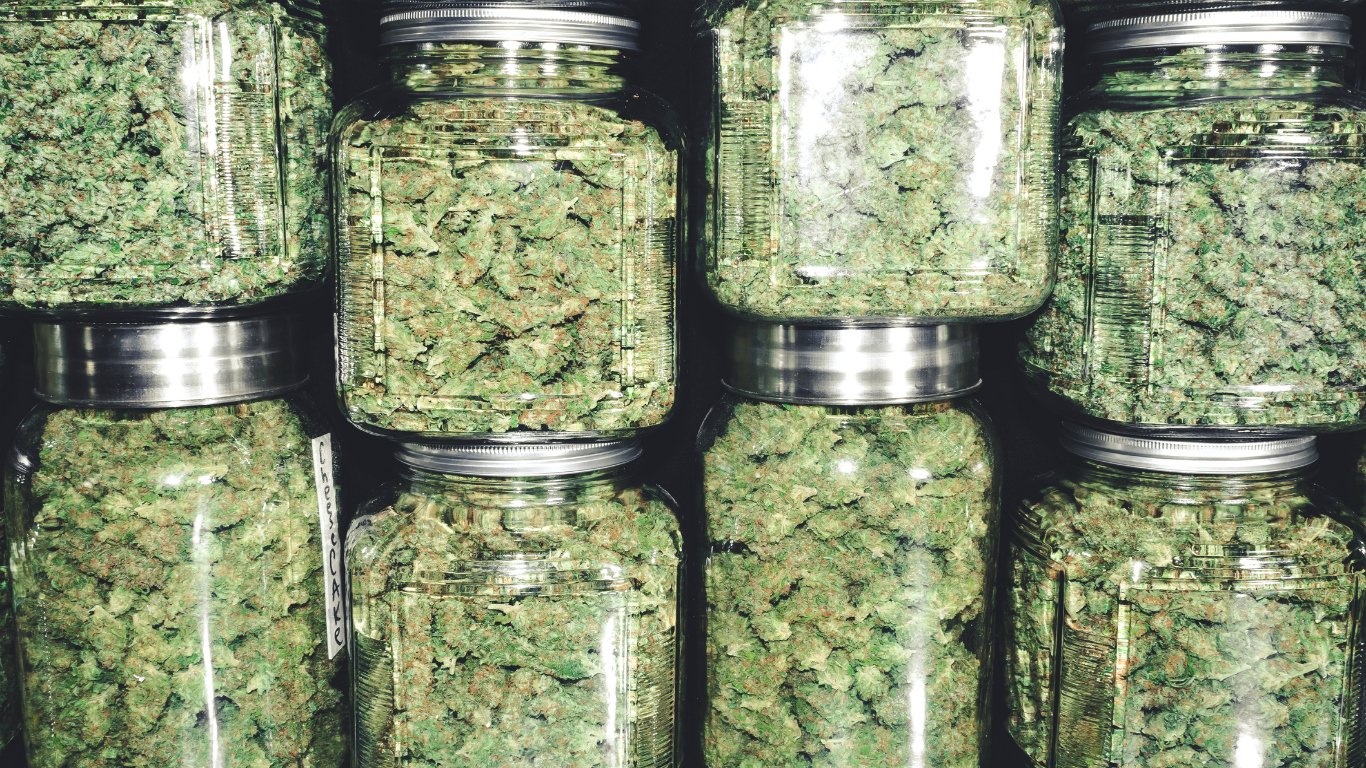

A month ago, Canada-based cannabis company Tilray Inc. (NASDAQ: TLRY) closed at $16.57 a share. On March 25, shares closed at $5.04. In the early afternoon on March 26, the stock traded at around $8.39, up about 67% for the day.
On March 13, the company announced an underwritten secondary offering of 7,250,000 shares of its Class 2 common stock, along with warrants to purchase 11,750,000 of its Class 2 common shares and accompanying warrants to purchase another 19,000,000 Class 2 shares. The stock closed at $4.03 on its way to a 52-week low of $2.43 a few days later.
Aside from a dreadful fourth-quarter earnings report, there is no other company-reported information since the beginning of the year.
Something is moving Tilray stock far higher than other pot stocks. Other Canadian cannabis companies posted solid gains Thursday as well. Aurora Cannabis Inc. (NYSE: ACB) traded up more than 24% and Aphria Inc. (NYSE: APHA) traded more than 17% higher. Cronos Group Inc. (NASDAQ: CRON) traded up nearly 16%m and Canopy Growth Corp. (NYSE: CGC) was up more than 12%.
Medical Cannabis Is Paving the Way
On a fundamental level, all these pot sellers benefit from being able to remain open as “essential” businesses during the shutdown of most businesses, except grocery stores and gas stations, due to the coronavirus outbreaks in Canada and the United States. That exemption means that pot growers that were hammered last year might be able to meet sharply lowered expectations this year.
Tilray shares dropped nearly 76% in 2019, Canopy Growth dumped 27%, Cronos fell by more than 32% and Aurora Cannabis lost nearly 59% of its value. The carnage began to slow earlier this month and turned higher last week when it became clear that cannabis retail stores would be able to remain open during the shutdown.
Retail pot sellers have adopted curbside pickup and, where the law allows, home delivery to try to keep sales up. Prices have dropped and, of course, there are customers who are buying all they can afford, just in case.
Still, all that doesn’t begin to account for a 67% one-day jump in Tilray’s share price.
The Options Market Can’t Get Enough
Looking at options trading in Tilray stock may provide the answer to what lit the fire under the company shares. Call (buy) options trading volume at a $7.50 strike price was up more than 500% in the early afternoon Thursday on contracts expiring April 9. Trading in put (sell) options at the same price for the same day was down about 60%.
The implied volatility on those call options was 309%, roughly the same as the 306% implied volatility on put options. Volume for both contracts was low (90 calls and 73 puts) and roughly equal.
At an $11 strike price on April 9, the implied volatility of the call options was a whopping 3,700%, more than an order of magnitude greater than the implied volatility on a put option. While only 20 put contracts had traded Thursday, more than 1,900 call contracts had traded.
What options traders are betting on is that enough investors believe that Tilray stock is going to make big moves in one direction or another. A massive black swan event like the coronavirus outbreak can push volatility through the roof. Huge swings, not unusual in bearish markets like the one we’re experiencing now, can pay off for options traders who profit from the implied volatility in Tilray shares.
The Options Market Is Not a Place for Amateurs
There are at least three general things to keep in mind before investing either in Tilray stock or Tilray options. First, implied volatility, the key to trading options, does not look at a stock’s fundamentals. What matters is supply and demand: if the asset (Tilray options) is in high demand, implied volatility goes up and so does the price of the call option.
Whether Tilray’s business will bounce back, dragging the share price with it, is immaterial. The only thing that matters is how big the share price movements are.
Options are extremely sensitive to news, good or bad, and options traders can, and usually do, make money on share price movements in either direction. Volatility is their friend.
One other thing to note about options is the speed with which they can change share prices if demand falls. While Tilray shares traded up 67% when writing on this story began, the shares traded up about 53% at last look, down about $0.75 a share in little more than an hour.
Take This Retirement Quiz To Get Matched With A Financial Advisor (Sponsored)
Take the quiz below to get matched with a financial advisor today.
Each advisor has been vetted by SmartAsset and is held to a fiduciary standard to act in your best interests.
Here’s how it works:
1. Answer SmartAsset advisor match quiz
2. Review your pre-screened matches at your leisure. Check out the
advisors’ profiles.
3. Speak with advisors at no cost to you. Have an introductory call on the phone or introduction in person and choose whom to work with in the future
Take the retirement quiz right here.
Thank you for reading! Have some feedback for us?
Contact the 24/7 Wall St. editorial team.



